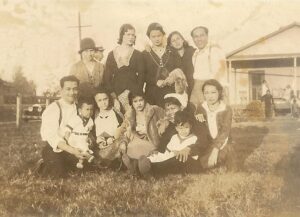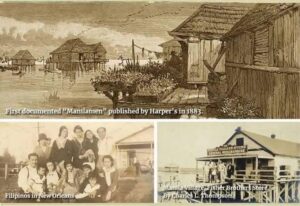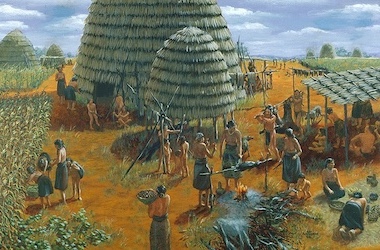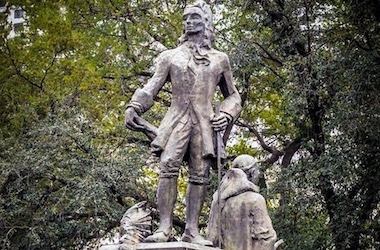Who are the Manilamen?
Manilamen are Filipinos that settled in colonial Louisiana in the 1700s.
Spain claimed the Philippines in 1521 when Ferdinand Magellan discovered the islands. This is less than three decades after Columbus found the new world and during the same year Spanish Conquistador Hernan Cortes conquered the Aztec Empire. The Philippine archipelago consisted of over 7,000 islands with many of them already inhabited. Just as with the Americas, the Philippines became part of the Spanish Empire.
Filipinos began to arrive in the Americas in 1587. The first landing was in Morro Bay, California followed by Mexico.
During the 1700s, just as the Spanish and French were exploring and settling in present-day Louisiana, ships from the Philippines would stop in ports throughout the Gulf of America on their to Europe. Known as the Manila Galleon Trade, this was one of the first examples of a global trade network. Between 1565 and 1815, the Manila Galleon Trade connected the economies of Asia, the Americas, and Europe. Filipino slaves, servants, and seamen would escape at ports of call in the Americas. Many would make their way to the French colony of Louisiana to evade their Spanish masters. Filipinos settled along the coast and in the swamps and marshes from Galveston to Mobile.
Many of the Filipinos aboard the Spanish galleons were Luzones Indios (natives of the Filipino island of Luzon). The main city and largest port in Luzon was Manila, hence the term Manilamen.
Some of the Manilamen joined Native American tribes as they could easily blend in due to common physical characteristics. Some joined the French and others established their own Filipino communities, such as St. Malo of Saint Bernard Parish in 1763. Other communities include Manila Village in Barataria Bay.
Being skilled sailors and fighters, a large number became pirates. During war time, they became privateers serving the highest bidder. It is estimated that over half of Jean Lafitte’s pirates were Manilamen. They were already well-known to the French, Spanish, and British governments, but it was their heroic involvement in the War of 1812 that popularized them in Louisiana history. Jean Lafitte and his Manilamen pirates fought under General Andrew Jackson in the famous Battle of New Orleans.
Local accounts and folklore throughout southwest Louisiana talk of Manilamen pirates making their way up the Sabine and Calcasieu Rivers burying treasure in the area known as “No Man’s Land”.
The Manilamen have been in Louisiana as long as the Cajuns, settling in the same coastal region of Louisiana. They have contributed to the history and defense of Louisiana, and their culture is part of the diverse fabric of Louisiana.






























